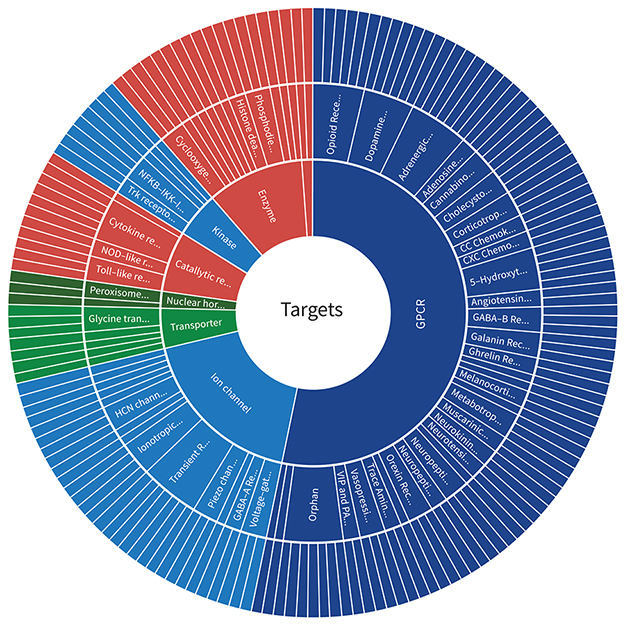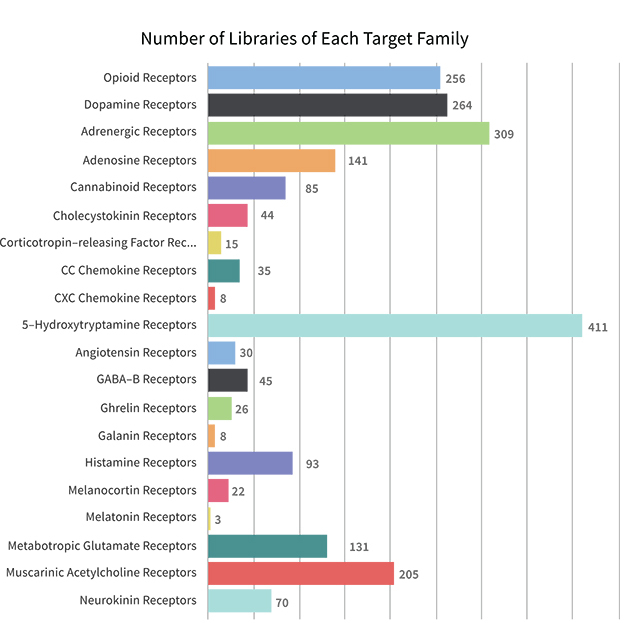About the HEAL Target and Compound Library
- With nearly 3,000 small molecules, the HEAL Target and Compound Library is the first to assemble known and potentially novel targets related to addiction, pain and overdose in one collection.
- The library provides an integrated platform for data mining, machine learning, structural modeling and virtual screening.
- The HEAL Target and Compound Library can be made available for meritorious HEAL-related assays through NCATS DPI in pre-spotted plates.
As part of the NIH Helping to End Addiction Long-term® Initiative, or NIH HEAL Initiative®, NCATS is focused on developing novel chemistry, screening and testing methodologies to discover new pharmacological tools and investigational drugs for pain, addiction and overdose. As part of these efforts, the NCATS Early Translation Branch has created a comprehensive, annotated HEAL library of compounds, including drugs, probes and tool compounds for addiction and pain-relevant targets.
The modern nature of the HEAL Target and Compound Library incorporates years of valuable sources and lessons learned on high-throughput screening and chemical library design at NCATS. Nearly 3,000 small molecules associated with approximately 60 known and hypothesized HEAL-relevant targets have been assembled, curated and annotated. Physical samples of the compound library have been acquired and plated on 1,536-well and 384-well plate formats, allowing rapid strategic screening for drug repurposing, innovative profiling and hypothesis testing of novel targets and tool compounds.
Interested in Accessing the HEAL Library?
A plated copy of the HEAL Target and Compound Library along with the plate format and annotated list of compounds can be made available to the research community specifically for meritorious HEAL-related assays through NCATS Division of Preclinical Innovation collaborations. For more information on the HEAL library and how to access it, please contact NCATSHEALPLATE@nih.gov.




